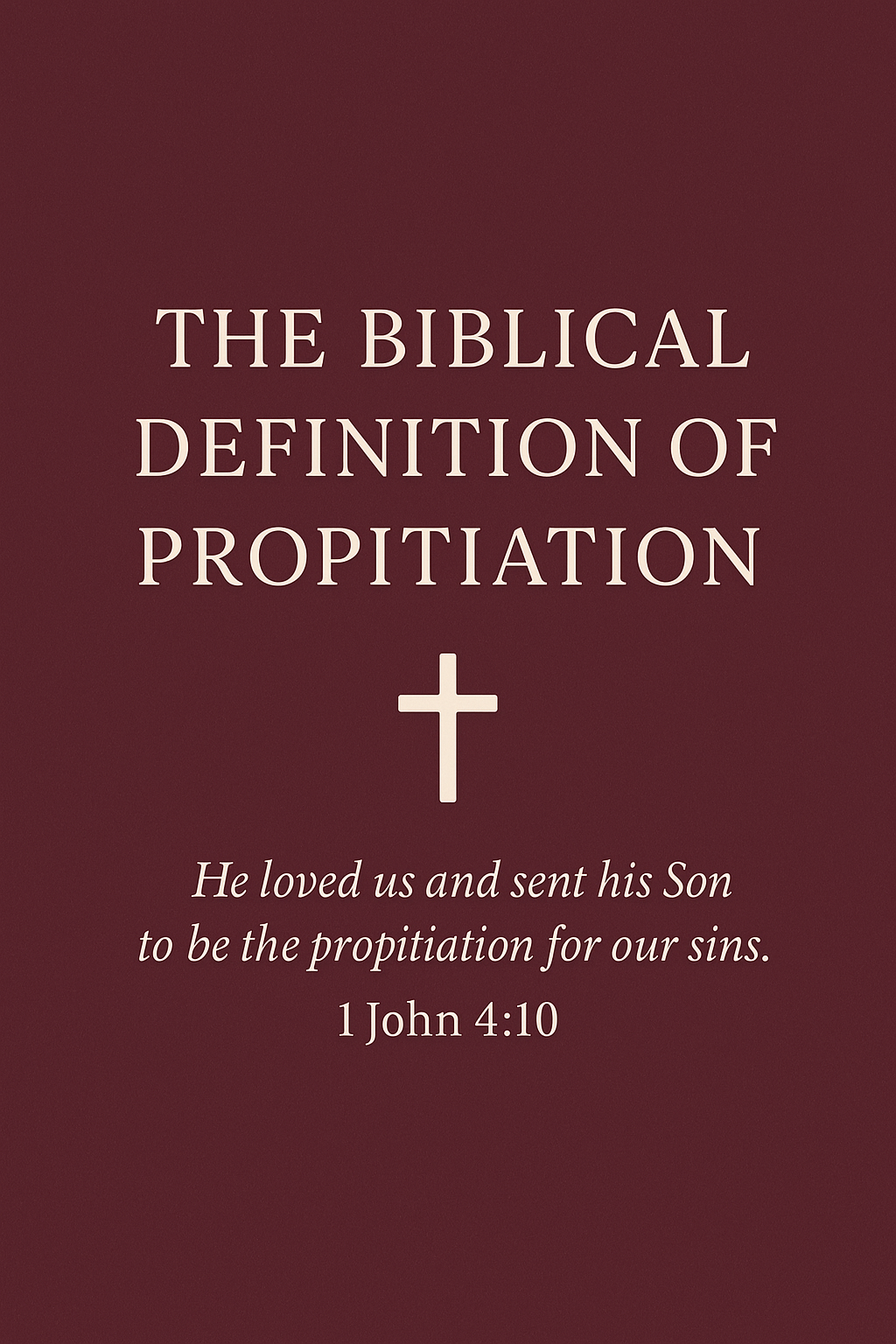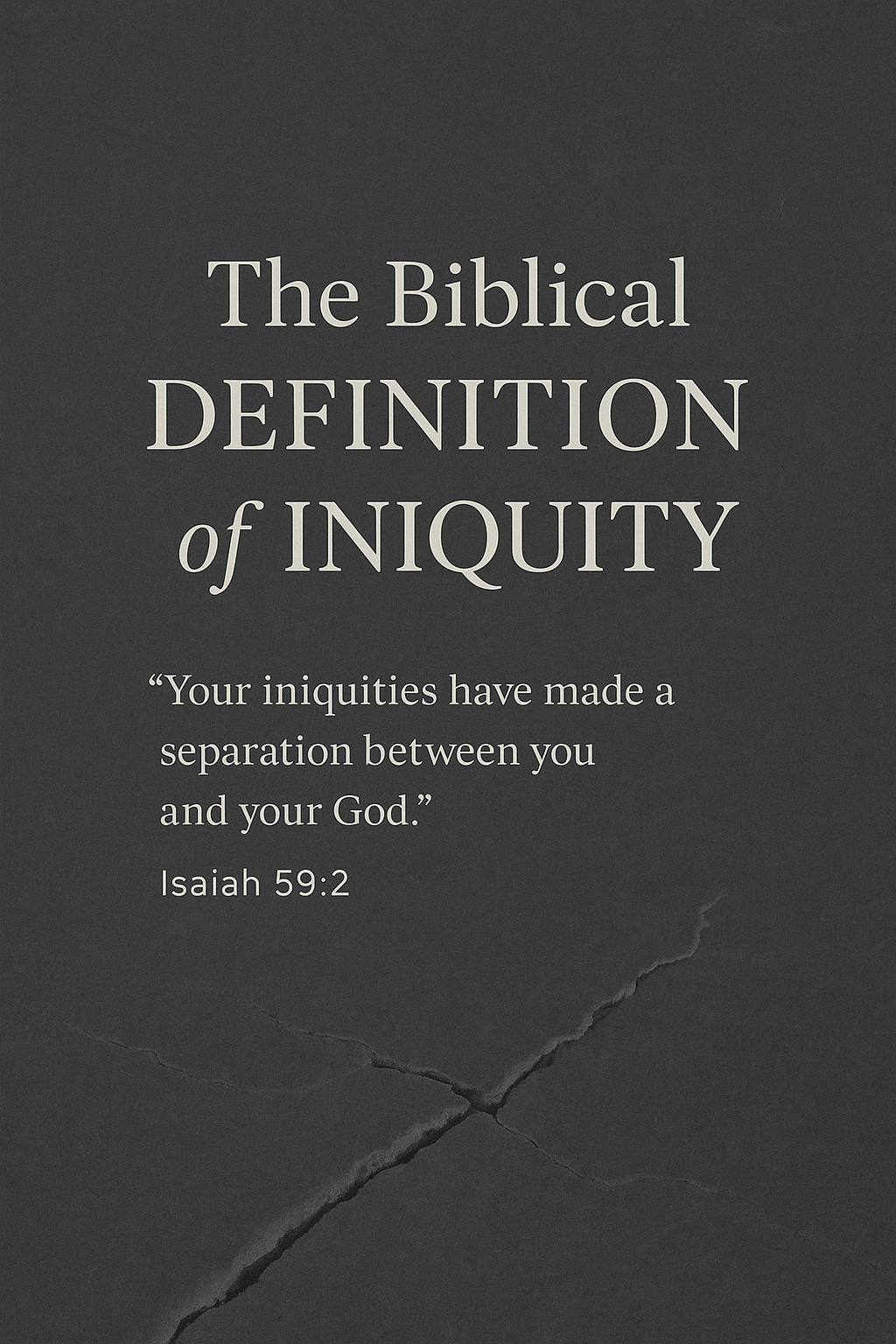Biblical Definition of Sanctification: What the Bible Really Teaches
The biblical definition of sanctification is a foundational doctrine in Christian theology, yet it is often misunderstood or oversimplified. At its core, sanctification means to be “set apart” for God’s special use and purpose, and it is closely tied to the concept of holiness12. But what does the Bible really teach about sanctification? How does it happen, and what does it mean for believers today? In this comprehensive article, we will explore the biblical definition of sanctification, examine key Scripture passages, and consider how this doctrine shapes the Christian life.
What Does "Sanctification" Mean in the Bible?
The term “sanctification” comes from the Greek word hagiasmos, meaning holiness or consecration. To sanctify something is to set it apart as holy, dedicated for God’s use12. In the Old Testament, objects, places, and people were sanctified—set apart for worship or service to God (see Exodus 19:10, Leviticus 20:7-8).
In the New Testament, sanctification takes on a deeper, spiritual meaning. Believers are not only set apart positionally by God, but are also called to grow in practical holiness. Paul writes, “For this is the will of God, your sanctification: that you abstain from sexual immorality” (1 Thessalonians 4:3). Here, sanctification is both a status and a process.
The Three Aspects of Biblical Sanctification
Biblical teaching reveals that sanctification has several dimensions:
1. Positional Sanctification (Definitive Sanctification)
At the moment of salvation, believers are set apart by God through faith in Christ. This is sometimes called definitive sanctification—a once-for-all act where God declares us holy because of Jesus’ sacrifice. Hebrews 10:10 states, “We have been sanctified through the offering of the body of Jesus Christ once for all”13. Paul addresses the Corinthian church as “those sanctified in Christ Jesus, called to be saints” (1 Corinthians 1:2).
This positional sanctification is not based on our works, but on Christ’s finished work. It is a legal and spiritual reality: every believer is already sanctified in God’s sight because of their union with Christ31.
2. Progressive Sanctification
While believers are positionally sanctified, the New Testament also describes sanctification as an ongoing process. This is the gradual work of the Holy Spirit in making us more like Christ in character and conduct. Paul commands, “Present your members as slaves to righteousness leading to sanctification” (Romans 6:19). He also writes, “The fruit you get leads to sanctification and its end, eternal life” (Romans 6:22)1.
Hebrews 10:14 captures this dynamic: “For by a single offering he has perfected for all time those who are being sanctified.” Here, sanctification is both complete and ongoing—the believer is perfected in Christ, yet still being made holy day by day45.
Progressive sanctification involves:
Dying to sin: Believers are called to “put to death” sinful behaviors and desires (Colossians 3:5).
Living to righteousness: We are to “walk in newness of life” (Romans 6:4) and bear the fruit of the Spirit (Galatians 5:22-23).
Growth in grace: Sanctification is a process of spiritual growth, as we are “renewed in the spirit of your minds” (Ephesians 4:23).
3. Ultimate Sanctification (Glorification)
The Bible also speaks of a future aspect of sanctification, when believers will be made perfectly holy at Christ’s return. Paul prays, “May the God of peace himself sanctify you completely, and may your whole spirit and soul and body be kept blameless at the coming of our Lord Jesus Christ” (1 Thessalonians 5:23)5. This final stage is sometimes called glorification, when the presence of sin is finally removed.
The Source and Means of Sanctification
Sanctification is the work of God’s free grace. The Westminster Shorter Catechism defines it as “the work of God’s free grace, whereby we are renewed in the whole man after the image of God, and are enabled more and more to die unto sin, and live unto righteousness”34. This means:
God is the primary agent: Sanctification is not self-improvement, but the supernatural work of the Holy Spirit in the believer’s life (2 Thessalonians 2:13, Romans 15:16).
Christ is the source: Believers are sanctified by virtue of their union with Christ (1 Corinthians 1:30, John 17:19)3.
The Word of God: Jesus prayed, “Sanctify them in the truth; your word is truth” (John 17:17). The Scriptures are the means by which God transforms us.
Faith and obedience: Believers cooperate with God’s work by trusting Him and obeying His commands (Philippians 2:12-13).
Key Biblical Passages on Sanctification
Let’s look at some of the most important Bible verses that define and describe sanctification:
Leviticus 20:7-8: “Consecrate yourselves, therefore, and be holy, for I am the LORD your God. Keep my statutes and do them; I am the LORD who sanctifies you.”
God calls His people to holiness, but He is the one who sanctifies them1.John 17:17-19: “Sanctify them in the truth; your word is truth. As you sent me into the world, so I have sent them into the world. And for their sake I consecrate myself, that they also may be sanctified in truth.”
Jesus prays for His followers to be sanctified through God’s Word35.Romans 6:19, 22: “Present your members as slaves to righteousness leading to sanctification... the fruit you get leads to sanctification and its end, eternal life.”
Sanctification is the result of living righteously by God’s power1.1 Corinthians 1:2, 30: “To those sanctified in Christ Jesus, called to be saints... And because of him you are in Christ Jesus, who became to us wisdom from God, righteousness and sanctification and redemption.”
Sanctification is both a status and a gift in Christ3.1 Thessalonians 4:3: “For this is the will of God, your sanctification: that you abstain from sexual immorality.”
God’s will for every believer is sanctification—a life set apart from sin1.Hebrews 10:10, 14: “We have been sanctified through the offering of the body of Jesus Christ once for all... For by a single offering he has perfected for all time those who are being sanctified.”
Sanctification is both accomplished and ongoing45.
How Does Sanctification Happen?
Sanctification is a cooperative process. God is the one who sanctifies, but believers are called to respond in faith and obedience. Paul writes, “Work out your own salvation with fear and trembling, for it is God who works in you, both to will and to work for his good pleasure” (Philippians 2:12-13).
Some key elements of the process include:
Renewal of the mind: Transformation comes as we align our thoughts with God’s truth (Romans 12:2).
Putting off the old self: We are to “put off your old self, which belongs to your former manner of life” (Ephesians 4:22).
Putting on the new self: We are to “put on the new self, created after the likeness of God in true righteousness and holiness” (Ephesians 4:24).
Walking by the Spirit: The Holy Spirit empowers believers to overcome sin and bear fruit (Galatians 5:16-25).
Perseverance: Sanctification is a lifelong journey, requiring endurance and continual dependence on God.
Sanctification and Good Works
Sanctification inevitably results in good works. As the Lutheran Confessions state, “good works are necessary fruits of faith in the life of a Christian and... proceed from a renewed heart that is thankful to God for His mercy and love”2. These works do not earn salvation, but are evidence of a transformed life.
James writes, “Faith by itself, if it does not have works, is dead” (James 2:17). True faith leads to a life of holiness and service.
Common Questions About Sanctification
Is sanctification instantaneous or progressive?
Both. The Bible teaches a definitive sanctification at conversion, but also an ongoing process throughout the Christian life341.
Can a Christian lose their sanctification?
While believers may struggle with sin, true sanctification is the work of God and will be brought to completion (Philippians 1:6, 1 Thessalonians 5:24).
What is the difference between justification and sanctification?
Justification is God’s declaration that we are righteous because of Christ; it is a one-time legal act. Sanctification is the ongoing process of being made holy in practice32.
Conclusion: Embracing the Call to Holiness
The biblical definition of sanctification is rich and multi-faceted. It is God’s gracious work of setting believers apart, transforming them into the likeness of Christ, and calling them to a life of holiness. As we yield to the Holy Spirit, immerse ourselves in God’s Word, and walk in obedience, we experience the ongoing reality of sanctification—a life set apart for God’s glory.




















